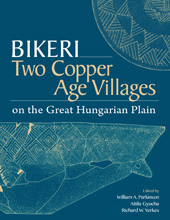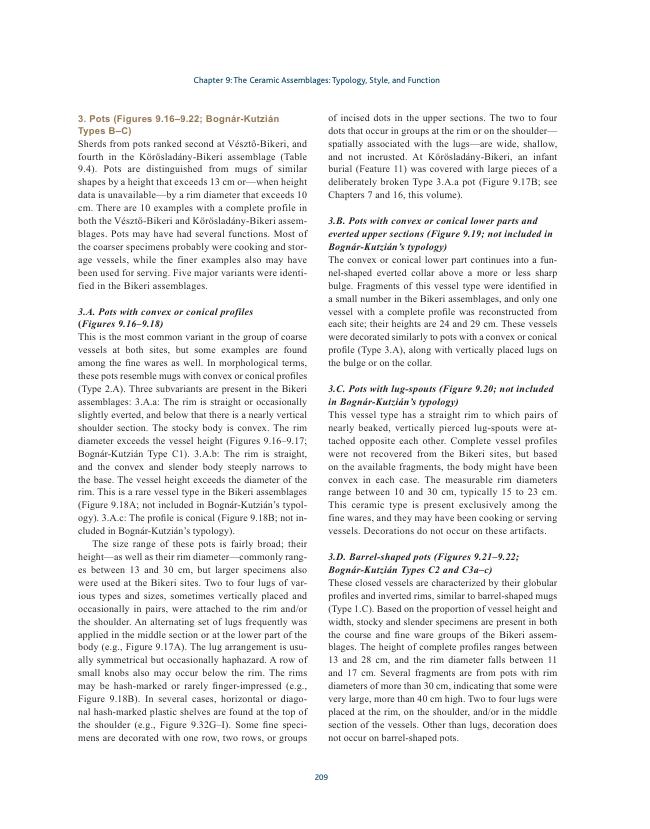2021 - ISD
E-book
Digital Version
Download | Copy/paste | Printing
Bikeri : Two Early Copper-Age Villages on the Great Hungarian Plain
100 p.
- The transition from the Neolithic period to the Copper Age in the northern Balkans and the Carpathian Basin was marked by significant changes in material culture, settlement layout and organization, and mortuary practices that indicate fundamental social transformations in the middle of the fifth millennium BC. Prior research into the Late Neolithic of the region focused almost exclusively on fortified 'tell' settlements. The Early Copper Age, by contrast, was known primarily from cemeteries such as the type site of Tiszapolgar-Basatanya. This edited book describes the multi-disciplinary research conducted by the Koros Regional Archaeological Project in southeastern Hungary from 2000-2007. Centered around two Early Copper Age Tiszapolgar culture villages in the Koros Region of the Great Hungarian Plain, Veszto-Bikeri and Korosladany-Bikeri, our research incorporated excavation, surface collection, geophysical survey and soil chemistry to investigate settlement layout and organization. Our results yielded the.
- first extensive, systematically collected datasets from Early Copper Age settlements on the Great Hungarian Plain. The two adjacent villages at Bikeri, located only 70 m apart, were similar in size, and both were protected with fortifications. Relative and absolute dates demonstrate that they were occupied sequentially during the Early Copper Age, from ca. 4600-4200 cal B.C. The excavated assemblages from the sites are strikingly similar, suggesting that both were occupied by the same community. This process of settlement relocation after only a few generations breaks from the longer-lasting settlement pattern that are typical of the Late Neolithic, but other aspects of the villages continue traditions that were established during the preceding period, including the construction of enclosure systems and longhouses. [Publisher's text].
- Special access authorizations may apply; please contact us for further information.
-
Information
ISBN: 9781950446216
DISCIPLINES



